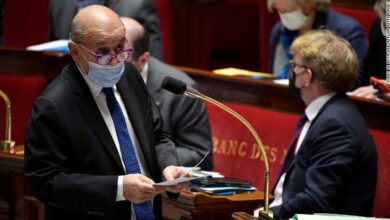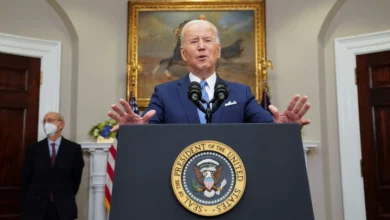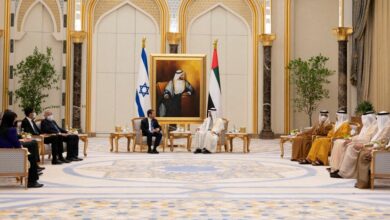
Air strikes by Saudi-led forces killed 30 civilians in an attack on a market in northern Yemen on Sunday, the Houthi-run news agency Saba said, as U.N. mediators pushed for a humanitarian pause in fighting that has killed nearly 3,000 since March.
Saba also said Houthi forces launched rockets against a number of Saudi army positions, including a military airport in the southern city of Najran, in response to what it described as Saudi aggression against Yemen.
An Arab coalition led by Saudi Arabia has been pounding the Iran-backed Houthi forces and allied army units loyal to former President Ali Abdullah Saleh since March in a campaign to restore exiled President Abd-Rabbu Mansour Hadi to power.
Saba said the air strike targeted the Aahem market in Hajjah province, where preliminary figures showed that 30 civilians were killed and an unspecified number of people were wounded.
"The Saudi enemy targeted citizens while they were doing their shopping at Aahem market," the agency quoted a security source in Hajjah as saying.
Residents confirmed an air strike on the market but gave no figures on casualties, saying the Houthis closed off the area and were transporting casualties to hospitals. A spokesman for the Saudi-led coalition could not immediately be reached for a comment.
On the attacks on Saudi military positions, Saba said that the Yemeni army launched several strikes on al-Sharafa army camp and the military airport in Najran and on tanks stationed north of the al-Khoba region of the Saudi province of Jizan.
It said one Saudi soldier was killed at an observation tower in Dhahran Aseer, where an armoured vehicle was also destroyed, while a tank was destroyed and dozens of soldiers were wounded at al-Makhrooq post in Najran when it was attacked with artillery and rocket fire.
TALKS ON A PAUSE
The fighting occurred amid efforts by the U.N. special envoy to Yemen, Ismail Ould Cheikh Ahmed, to arrange a pause in fighting until the end of the Muslim holy month of Ramadan, on July 17, to allow for deliveries of humanitarian aid.
Ould Cheikh Ahmed was due to travel to Sanaa on Sunday for talks with the Houthis, after discussions in Muscat, Oman.Political sources in Muscat said Saudi-led forces had demanded guarantees that the Houthis and allied army units would not use the pause to keep advancing on areas held by forces allied or loyal to Hadi in south and eastern Yemen.
Houthi spokesman Mohammed Abdul Salam said in a post on his Facebook page that he had met Ould Cheikh Ahmed on Friday in Muscat to discuss the matter. He said the meeting was attended by the ambassadors of the European Union and Germany.
The United Nations last week designated the war in Yemen as a Level 3 humanitarian crisis, its most severe category.
On Friday, the United Nations alerted aid groups to be prepared for a possible humanitarian pause in fighting in Yemen that would allow them to deliver help to some of the 21 million people in need. The United Nations organised a five-day humanitarian pause in May, but aid groups said the truce was not long enough to cover all the need of Yemen.




